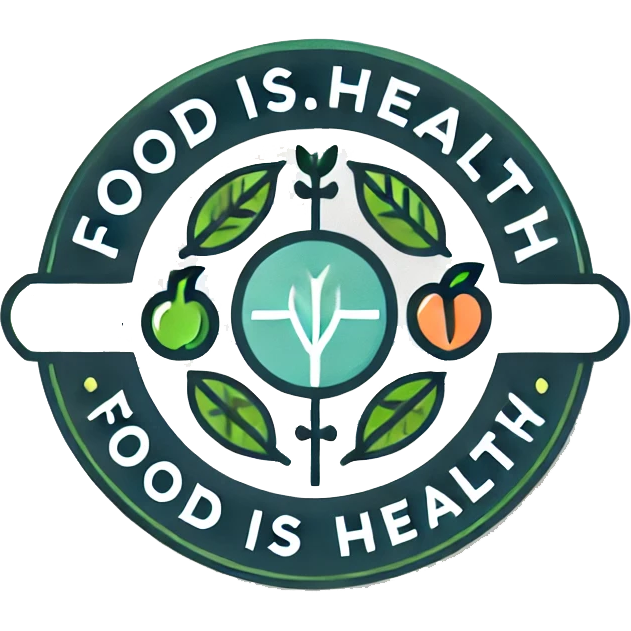Inflammation is a natural process in the body, often triggered by injury or illness to protect and heal tissues. However, chronic inflammation, which lasts for a prolonged period, can lead to various health issues, such as heart disease, diabetes, and arthritis. Fortunately, certain foods can help reduce inflammation and promote overall well-being. Incorporating these foods into your diet can support your body’s ability to combat inflammation and keep you feeling your best.

Top Foods That Reduce Inflammation
Let’s explore some of the best anti-inflammatory foods you can include in your daily meals.
1. Fatty Fish
Fatty fish like salmon, sardines, mackerel, and tuna are excellent sources of omega-3 fatty acids, which are renowned for their anti-inflammatory properties. Omega-3s help reduce the production of molecules and substances linked to inflammation, such as inflammatory cytokines. Research has shown that people who consume omega-3-rich fish regularly experience lower levels of C-reactive protein (CRP), a marker of inflammation in the body.
How to include fatty fish in your diet:
You can grill, bake, or pan-sear fatty fish and pair it with vegetables for a healthy meal. Aim to include fatty fish in your diet at least twice a week.
2. Leafy Greens
Leafy green vegetables, such as spinach, kale, and Swiss chard, are packed with vitamins and minerals, especially antioxidants like vitamin C, vitamin E, and beta-carotene. These antioxidants help protect your cells from oxidative stress, a major contributor to chronic inflammation. Leafy greens also contain polyphenols, which have been shown to reduce inflammatory markers in the body.
How to include leafy greens in your diet:
Try adding greens to your salads, smoothies, or sauté them with a little olive oil for a delicious side dish.
3. Berries
Berries such as blueberries, strawberries, raspberries, and blackberries are rich in antioxidants and compounds like anthocyanins that reduce inflammation. These tiny fruits are nutrient-dense, and their natural compounds help fight inflammation while also reducing the risk of heart disease and other inflammation-related conditions.
How to include berries in your diet:
Add berries to your morning cereal, yogurt, or oatmeal. They also make a great snack or dessert when eaten fresh or frozen.
4. Turmeric
Turmeric, a bright yellow spice commonly used in Indian cuisine, contains a powerful anti-inflammatory compound called curcumin. Curcumin has been extensively studied for its ability to block inflammatory pathways and reduce the activity of inflammatory molecules. Turmeric is particularly effective in managing inflammatory conditions like arthritis and may also reduce the risk of developing heart disease and Alzheimer’s disease.
How to include turmeric in your diet:
You can add turmeric to soups, stews, curries, and smoothies. For better absorption, consume turmeric with black pepper, as it contains piperine, which enhances curcumin’s effectiveness.
5. Nuts and Seeds
Nuts like almonds, walnuts, and pistachios, along with seeds such as chia seeds and flaxseeds, are excellent sources of healthy fats, including omega-3s and monounsaturated fats. These fats help reduce inflammation and improve heart health. Nuts and seeds also contain fiber and antioxidants, which are crucial for fighting inflammation throughout the body.
How to include nuts and seeds in your diet:
Snack on a handful of nuts, sprinkle seeds over your salads or yogurt, or add them to smoothies and baked goods.
6. Olive Oil
Extra-virgin olive oil is a staple of the Mediterranean diet and is loaded with anti-inflammatory compounds, including oleic acid and oleocanthal, which have been shown to mimic the effects of anti-inflammatory drugs. Olive oil helps lower levels of CRP and other inflammatory markers in the body, making it one of the healthiest fats you can consume.
How to include olive oil in your diet:
Use olive oil as a dressing for salads, drizzle it over vegetables, or use it as a cooking oil for stir-fries and roasted dishes.
7. Tomatoes
Tomatoes are rich in lycopene, a potent antioxidant that reduces inflammation and protects against diseases such as cancer and heart disease. Lycopene is particularly effective at reducing inflammation in the lungs and elsewhere in the body. Cooking tomatoes increases their lycopene content, making foods like tomato sauce a great way to maximize your intake.
How to include tomatoes in your diet:
Add fresh tomatoes to salads and sandwiches, or enjoy cooked tomatoes in soups, sauces, and stews.
8. Ginger
Ginger has been used for centuries as a medicinal root to treat various ailments, including inflammation. Ginger contains bioactive compounds like gingerol, which has powerful anti-inflammatory and antioxidant effects. Studies show that ginger can help reduce inflammation and pain in conditions like osteoarthritis and may also lower CRP levels in the body.
How to include ginger in your diet:
Use fresh or powdered ginger in teas, stir-fries, or smoothies. You can also add it to soups and marinades for an extra flavor boost.
9. Garlic
Garlic is not only a flavorful addition to meals, but it also has anti-inflammatory benefits. It contains sulfur compounds, such as allicin, which have been shown to reduce inflammation in the body by inhibiting the production of pro-inflammatory cytokines. Garlic has been used for its medicinal properties in various cultures for thousands of years.
How to include garlic in your diet:
Add fresh garlic to your stir-fries, sauces, soups, and marinades. Roasting garlic brings out its natural sweetness and can be a delicious addition to spreads and dips.
10. Green Tea
Green tea is packed with antioxidants called catechins, particularly epigallocatechin gallate (EGCG), which has strong anti-inflammatory properties. Drinking green tea regularly has been linked to lower levels of inflammation and a reduced risk of chronic diseases, such as heart disease and cancer.
How to include green tea in your diet:
Enjoy a cup of green tea in the morning or between meals. You can also try matcha, a powdered form of green tea that is especially rich in catechins.
Conclusion
Incorporating these anti-inflammatory foods into your diet can significantly reduce chronic inflammation and improve your overall health. A diet rich in omega-3s, antioxidants, and healthy fats can help combat the effects of inflammation, while also lowering the risk of developing related health conditions. While no single food can eliminate inflammation, a balanced, nutrient-dense diet can make a big difference in your body’s ability to manage and reduce inflammation over time. So, whether it’s adding more leafy greens, fish, or berries to your meals, every little change can contribute to a healthier, inflammation-free life.
By choosing a variety of these anti-inflammatory foods, you’ll not only enjoy delicious meals but also support your long-term health and well-being.
Make sure to check out more articles in our News & Views section. Feel free to reach out any time to collaborate with Food Is Health on projects which help people heal through natural food & nutrition.
Organic vs Conventional Food | Food Preservatives & Additives | Anti-Inflammatory Diets | Gut Health & Probiotics | Plant-Based Diets | Detox Diets & Cleanses | Food Allergies & Sensitivities Functional Foods | Sustainable Eating & Food Waste | Ag Related Topics | Popular Topics
